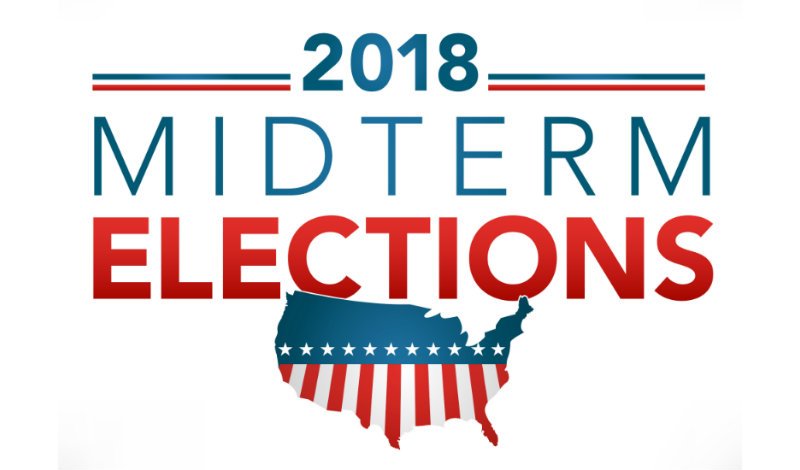Reflecting on the 2018 Midterm Elections
The 2018 midterm elections presented an opportunity for Americans to react to President Trump’s governance thus far. A midterm election consists of the entirety of the House of Representatives and one third of the Senate. This year’s midterm elections resulted in a win for the Democrats in the House of Representatives but a Republican victory in the Senate.
In an August CNN poll, 45% of voters stated that President Donald Trump was an important factor in how they would vote in this year’s midterms. Out of the voters who planned on voting for a Democratic candidate, 49% said that Trump was a factor in how they would vote. Only 22% stated that he would have a very small effect on how they would vote. 45% of those planning to vote for a Republican candidates claimed that Trump was a major influence on how they would vote, whereas 12% stated that he would not impact retaining their choice of candidates.
A Democrat take-over of the House and a Republican win in the Senate were predicted with nine Republican seats, twenty-four Democratic seats, and two independent seats up for election in that body. Generous donations to Democratic candidates for the House, their leads in polling, and the 37 Republicans leaving congress all pointed towards the possibility of a blue wave in the House.
In the Senate, many of the competitive races took place in rural states. This gave leverage to Republicans in maintaining a Senate majority. Some view the Democratic win in the House as voter-backlash against the president. The Democrats were supported by the metropolitan and suburban districts that had previously leaned Republican, while the Republicans relied on the support of rural communities.
The Democratic House of Representatives now has the power to investigate Trump, perhaps even gain access to his elusive tax records, and begin the steps towards impeachment. Though, Nancy Pelosi, House Minority leader, pledged bipartisanship with this win. The White House legal team is preparing for investigations into Trump’s relationship with Russia, misuse of taxpayer money by members of his cabinet, and payments of hush money to women with whom Trump was allegedly involved. Trump’s response to these predicted inquiries was the declaration that if House investigations were launched then he would retaliate with his own through the Senate. Trump claimed that they would be investigated for leaking classified information and “much else.”
Democrats now have the power to block potential tax cuts, the repeal of Obama Care, as well as the state of social security. The retained Republican majority within the Senate gives Trump the power to make more direct changes to America’s judiciary branch.
Along with the conflict between parties came many firsts in the results of the midterm elections. There were many victories for women and members of the LGBT community. In these victories, many of the candidates made history as the first of many minorities to hold seats in congress. The first two Muslim congresswomen were elected, Rashida Tlaib of Michigan and Ilhan Omar of Minnesota. Rashida Tlaib is the first Palestinian-American woman in congress, and Ilhan Omar is the first Somali- American woman in congress. The first Native American women were elected to Congress, Sharice Davids of Kansas, also the first lesbian congresswoman from her state, and Debra Haaland of New Mexico. The first Latina congresswomen from Texas, Veronica Escobar and Sylvia Garcia, were also elected in the midterms. The first openly bisexual member of the Senate and the first female senator from Arizona, Kyrsten Sinema, was elected. Alexandria Ocasio-Cortez of New York became the youngest woman in congress at the age of twenty-nine. These historical firsts made this years midterms unique, along with the victories of other women in both parties.







